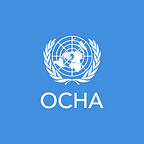Time for lasting change in Ukraine
The conflict in Ukraine is increasingly off the international radar, but since April 2014, fighting has killed over 2,500 civilians, injured over 7,000 and displaced 1.6 million. Last week the UN’s Assistant Secretary-General for Humanitarian Affairs (ASG) and Deputy Emergency Relief Coordinator, Ursula Mueller visited Ukraine for three days to witness first-hand the ongoing impact of the conflict on millions of civilians. “We need to remind parties of their obligation to protect civilians,” she said, on arriving in the capital, Kyiv. “I am deeply concerned that millions of ordinary men, women and children continue to pay the highest price in this crisis on Europe’s doorstep.”
Displaced people struggle to cope
Many families have been internally displaced for more than three years and are now living in desperate conditions. Unable to find work, they have depleted their savings and assets, and their coping capacities are eroded. Valentina, lives in a small, damp room in a centre for internally displaced people in Sviatohirsk, and has not visited home since 2014 due to travel costs and ongoing insecurity. “I still remember my grandchildren playing around the room, circling me... I miss them,” she said with tears in her eyes.
“We don’t know what the future holds”
Each displaced individual and family has a difficult story to share — the loss of a parent, a child, sibling or spouse; no shelter, inadequate food, difficulty accessing doctors. Tatiana, 47, has lived in an apartment with her family since 2014 when they fled from Donetsk. The extreme damp has worsened her son, Artem’s illness, and he has difficulty breathing. “If there is no heating in winter, we will have to go back home, to where the shelling is now. We cannot move anywhere else,” said Tatiana. Another mother at the IDP centre told the ASG: “We don’t know what future holds for our children.”
The right to hope
Critical infrastructure, such as schools, hospitals and water facilities, have been damaged or destroyed in the fighting, particularly in the conflict-affected provinces of Donetsk and Luhansk. “We must be better at communicating to the world how the daily violence and intensifying deprivation here in Eastern Ukraine is negatively affecting ordinary families,” ASG Mueller stressed. IDPs need durable solutions so they can integrate into their new communities, or return home. “Every Ukrainian should have the right to a future with hope,” she said.
Stark choices
Sergiy, 54, lives in a centre for displaced families in Sviatohirsk. “We need fuel for winter. We do not know if we will survive without coal.” Dozens of families in the settlement can barely make ends meet, and are left with stark choices between being warm, having food or medicine. The Government has renewed its efforts to find lasting solutions for the displaced, but it requires more financial and technical support.
Relief aid under-funded
ASG Mueller assured all of the people who she met of the UN and partners’ readiness to support. But mobilizing adequate humanitarian resources for the Ukraine crisis has been a huge struggle: well into October, the 2017 Humanitarian Response Plan is only 26 per cent funded. “‘I call on the donors to increase their support... As winter approaches, those who are most vulnerable — the elderly, women and children — are being forced to make impossible choices between whether they have food, clean water, heat, essential medicine or a roof over their head.”
Access compromised
ASG Mueller crossed the contact line, a 459-km de facto border that separates areas under and beyond the Government’s control. Humanitarian organizations face immense difficulties reaching people in need across the de facto border and urgently require the lifting of restrictions on operations. The border divides families and communities. In August alone over 1 million people crossed, to access services, collect their pension or see family. But crossing entails hours of waiting. “It is inhumane,” exclaimed an angry woman waiting for her paperwork to be processed. “We often wait for ten or even 15 hours to be able to cross.” But she has no choice: “I only get my pension in the Government-controlled area,” she said.
Resilience the ultimate goal
While a political solution to the conflict in Ukraine is vital, displacement is likely to be a reality for some time to come. Given this, humanitarian and development partners must align their support, said the ASG, who traveled with a delegation from the UN Development Programme and met with the Governors of Donetsk and Luhansk provinces, Mr. Pavlo Zhebrivskyi and Mr. Yuriy Harbuz. “In the immediate term, we need the resources to scale up humanitarian assistance. At the same time, we must look beyond to build more resilient communities — that is our ultimate goal,” said the ASG.
